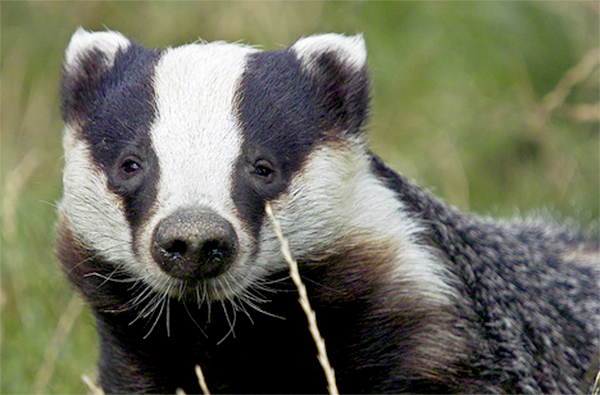
Over 10% of livestock farmers in Wales have illegally killed badgers according to a research paper published today.
Using a method known as the randomised reponse technique (RRT), the research team suggested that it would be interesting to model how such a rate of illegal badger killing could be contributing, or not, to the spread of bTB, particularly as badger movements are effected when social groups are disrupted.
Farming Minister David Heath hinted the badger cull could resume in other areas after a delay was announced by the government last October.
Plans for a badger cull in Somerset and Gloucestershire were due to go ahead until it was stopped amid widespread criticisms, protests and petitions.
The paper, called 'Innovative techniques for estimating illegal activities in a human-wildlife-management conflict', by teams from the Bangor University, University of Kent and Kingston University revealed the estimated rate of illegal culling.
Previous research does not sufficiently consider whether illegal badger killing contributes to the spread of bovine tuberculosis (bTB) to livestock.
"The proportion of farmers estimated to have killed badgers should be considered by policymakers and in the wider debate" said Dr Paul Cross, from Bangor University.
"Intensive badger culling is one approach being considered by policy makers in an attempt to control the spread of tuberculosis in cattle."
"However, studies investigating the effects of badger culling on TB outbreaks in cattle have not factored in the prevalence of illegal badger killing, and its potential to spread disease."
Dr Freya St John, from the University of Kent said: "Attempting to resolve the issues regarding badgers as carriers of bovine TB requires cross-disciplinary scientific research, a departure from deep-rooted positions, and the political will to implement evidence-based management. We believe that this study makes an important contribution to that debate."
RRT requires respondents to roll two dice before answering sensitive questions such as ‘have you killed a badger in the last 12 months’.
The result of the dice roll is never revealed to researchers, it is the respondents’ secret.
Crucially there are instructions associated with the dice roll, for example, if the sum of the dice equals five through to ten, answer truthfully; if the sum is between 2 and 4, answer 'yes'; and if the sum is 11 or 12, answer 'no'.
The role of 'forced' answers adds noise to the data so that a 'yes' answer doesn’t necessarily mean that a respondent committed an illegal act.
After the delay last year, the NFU wrote to the Environment Secretary Owen Paterson to urge the operation to commence in 2013.
Environment Secretary Owen Paterson said: "Despite a greatly increased effort over the last few days and weeks, the farmers delivering this policy have concluded that they cannot be confident that it will be possible to remove enough badgers based on these higher numbers and considering the lateness of the season."
"The Government is determined to tackle bovine TB by all the means available to us. Now, in the next few months, we will ensure that the pilot culls can be implemented effectively, in the best possible conditions, with the right resources."
The President of the British Veterinary Association said the halt was a 'severe blow' to the vets and farmers who are battling against bovine TB.
"We need to wait for the Secretary of State’s statement to hear the reasons behind any delay, and we very much hope this will not reflect a change in policy" said Peter Jones.
"As we get later in the season we must recognise that it becomes less likely for a cull to be delivered effectively and so it could make sense to delay until next year."
"It is important to note that the speculation is that the cull is being delayed due to questions surrounding the logistics of delivery. The science has not changed."
